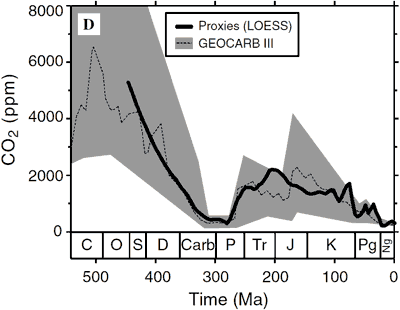I'm discussing climate with an Austrian horticulture professor. Our atmosphere is less than 400 ppm of CO2. How could that matter to the overall refractive index (link) which causes the greenhouse effect?
CO2 refractive index = 1.000449
Air refractive index = 1.000292
Supposedly the earth's CO2 concentration was 300 ppm at the start of the industrial revolution.
A change from 300 ppm to 400 ppm is as follows:
Air refractive index with 300 ppm CO2 = 1.0002920000
Air refractive index with 400 ppm CO2 = 1.00029201571
How can that matter?
Could changes in solar activity be more relevant to climate change?
CO2 refractive index = 1.000449
Air refractive index = 1.000292
Supposedly the earth's CO2 concentration was 300 ppm at the start of the industrial revolution.
A change from 300 ppm to 400 ppm is as follows:
Air refractive index with 300 ppm CO2 = 1.0002920000
Air refractive index with 400 ppm CO2 = 1.00029201571
How can that matter?
Could changes in solar activity be more relevant to climate change?
Last edited:

